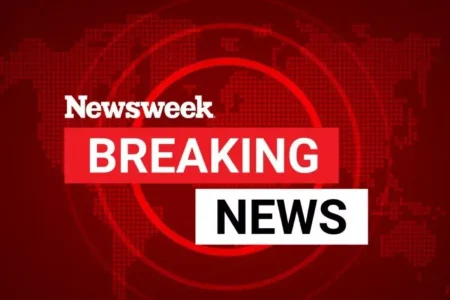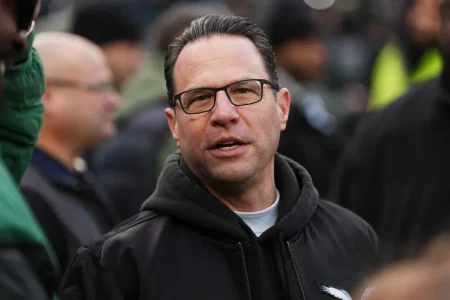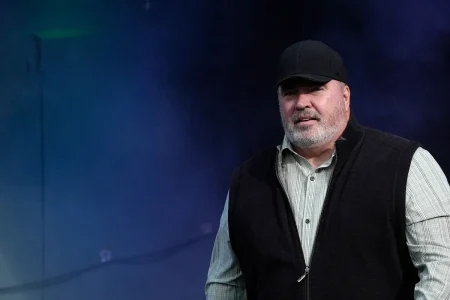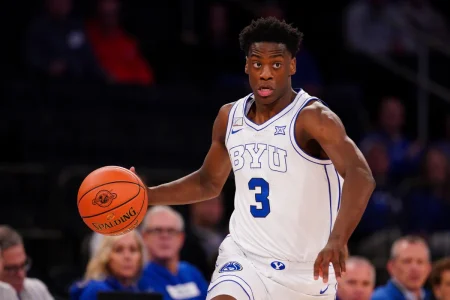The New Year’s Day attacks in New Orleans and Las Vegas, initially shrouded in uncertainty, quickly became focal points of national security concerns and political debate. The New Orleans attack, a vehicular assault on Bourbon Street during New Year’s Eve celebrations, resulted in at least 15 fatalities and 30 injuries. The perpetrator, identified as Shamsud-Din Jabbar, 42, was a U.S. citizen with recent domestic travel history. The Las Vegas incident involved a Tesla Cybertruck explosion in front of the Trump International Hotel, killing the driver and injuring seven others. While the suspect’s identity in the Las Vegas incident remained undisclosed at the time of these initial reports, both incidents were immediately treated as potential acts of terrorism, raising concerns about domestic extremism and potential links to international terrorist organizations.
The discovery of an ISIS flag, weapons, and a potential improvised explosive device (IED) in Jabbar’s rented truck, along with two additional IEDs found earlier that day in New Orleans, solidified the suspicion of terrorist involvement. Furthermore, reports emerged that Jabbar had posted videos online affiliated with ISIS just hours before the attack. This apparent connection to ISIS fueled concerns about the radicalization of U.S. citizens and the potential for domestic terrorism inspired by international extremist groups. The use of rented vehicles in both attacks, facilitated through the Turo app, also highlighted the potential vulnerabilities associated with such rental services and their potential exploitation by malicious actors.
The immediate aftermath of the attacks saw a flurry of responses from law enforcement, political figures, and the public. The FBI took the lead in the New Orleans investigation, urging the public to provide any relevant information. In Las Vegas, local police and the FBI launched a joint investigation into the Cybertruck explosion, treating it as a potential criminal and terrorist act. President Joe Biden addressed the nation, acknowledging the attacks and assuring the public that law enforcement and intelligence agencies were diligently investigating any possible connections between the two incidents. He also emphasized the need to avoid premature conclusions while the investigations were ongoing.
The political landscape became charged as the attacks unfolded. President-elect Donald Trump, in characteristic fashion, seized on the incidents to reiterate his hardline stance on immigration and border security, suggesting that the attacks validated his claims about criminals entering the United States. This assertion, however, was contradicted by law enforcement’s confirmation that the New Orleans suspect was a U.S. citizen. Tom Homan, Trump’s border czar, echoed these sentiments, criticizing the Biden administration for its perceived weakness on national security and border control, and linking the attacks to a failure to adequately address these issues.
Homan’s characterization of both incidents as “suicide missions,” based on the perpetrators’ apparent lack of intention to escape, further intensified the narrative surrounding the attacks. His assertion that both individuals would be revealed to have ISIS affiliations, while not confirmed at the time, added to the growing concern about the potential for ISIS-inspired terrorism within the United States. This perspective, however, also faced criticism for potentially pre-empting the ongoing investigations and for leveraging the tragedies to promote a specific political agenda.
The attacks also sparked a wave of reactions from other prominent figures. Senator John Kennedy of Louisiana expressed his commitment to uncovering the truth behind the New Orleans attack, promising to “raise fresh hell” if the FBI failed to provide a thorough explanation. Melania Trump offered condolences to the victims and their families, calling for an end to the violence. These varied responses reflected the complex emotions and anxieties triggered by the attacks, ranging from demands for accountability and justice to calls for unity and healing. The attacks, occurring on New Year’s Day, a time typically associated with celebration and hope, cast a somber shadow over the start of the new year and served as a stark reminder of the ongoing threat of both domestic and international terrorism.
